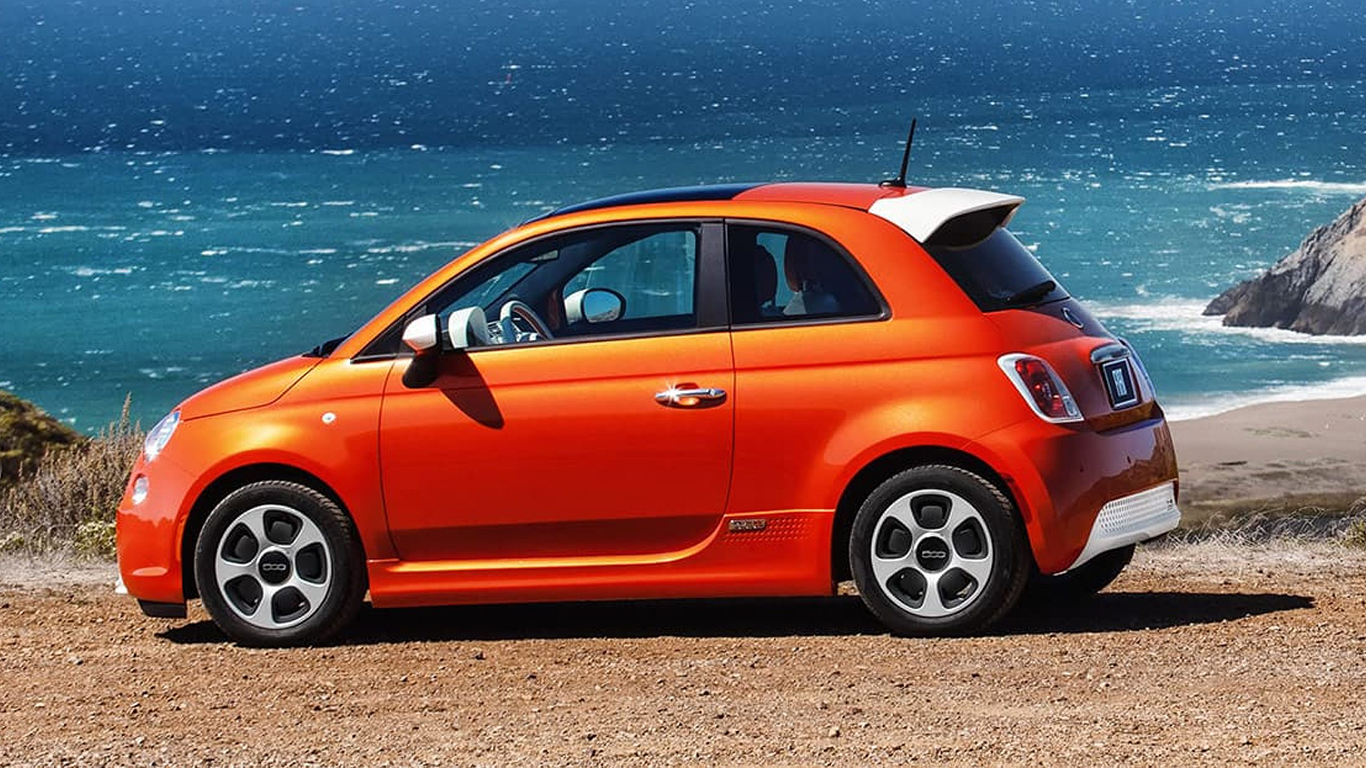Cars and Drivers
This Is Why Americans Hate Buying This Car More Than Any Other

Published:
Last Updated:

Most Americans still go through a dealer to buy a car, though Tesla as one of the few exceptions. Satisfaction with those dealers is, therefore, critical to which cars people purchase. The sales process for one brand is below all others. It is, incidentally, one of the worst-selling cars in America.
The 2019 edition of the U.S. Sales Satisfaction Index (SSI) Study, an annual survey by car research firm J.D. Power, points out that low satisfaction with dealerships, websites and inventory can cripple “close rates.” That means people are less likely to buy the brand’s cars. Fiat is at the bottom of the new list. The company also happens to have suffered a sales drop of 38% to 7,463 through the first three-quarters of the year. That means it sells only 27 vehicles a day.
Satisfaction with how a car is sold means several things, including impressions of a dealership before people visit it. The online presence of the dealer can keep people from even visiting the facility. Chris Sutton, Vice President of Automotive Retail at J.D. Power, points out, “If a new-vehicle shopper isn’t satisfied with the dealer website or facilities, they aren’t going any further in the sales funnel, and that sale is lost before a dealer can demonstrate how well it does everything else.” About 25% of shoppers never visit a specific dealer because of their first exposure to a dealer is online. The e-commerce experience can actually kill a sale. When people do go to a dealership, the dealer’s personnel are critical to people’s decision to buy.
The J.D. Power rank measures a car’s service with a highest possible grade of 100. The firm rates both luxury and mass-market cars. Luxury cars are compared to other luxury cars and mass-market cars to other cars in that category. The mass-market average across 18 brands was 772. Fiat’s rating was 730. Buick, at the high end, had a rating of 795. The factors that go into the number J.D. Power reports are “based on six factors (in order of importance): dealer personnel (28%); delivery process (21%); working out the deal (18%); paperwork completion (16%); dealership facility (13%); and dealership website (4%). Rejecter satisfaction is based on five factors: salesperson (40%); fairness of price (15%); experience negotiating (15%); variety of inventory (15%); and dealership facility (14%).”
Just above Fiat in terms of poor grades was South Korean manufacturer Kia, with a grade of 742. Barely better, Dodge was rated at 746. Kia stablemate Hyundai also rated very poorly at 747. Fiat is a brand of Fiat Chrysler. Two of the company’s other models rated near the bottom, with Chrysler at 748 and Jeep at 750.
Luxury car models tended to have better grades overall. The average rating across 14 brands was 805. Porsche topped the list with a rating of 827. Porsche is also one of the best car brands in America. Mercedes was next at 825. Genesis, the luxury brand of Hyundai, was at the bottom of the luxury list with a rating of 728.
The 2019 U.S. Sales Satisfaction Index (SSI) Study was in the field from April until May of this year. It covered 28,867 buyers who purchased or leased a vehicle in that period.
Is there a lesson from the study? In Fiat’s case, almost certainly. A badly faltering brand also has a terrible dealership experience for potential buyers. To make matters even worse, Fiat is one of the worst car brands for 2019.
If you’re one of the over 4 Million Americans set to retire this year, you may want to pay attention. Many people have worked their whole lives preparing to retire without ever knowing the answer to the most important question: am I ahead, or behind on my goals?
Don’t make the same mistake. It’s an easy question to answer. A quick conversation with a financial advisor can help you unpack your savings, spending, and goals for your money. With Zoe Financial’s free matching tool, you can connect with trusted financial advisors in minutes.
Why wait? Click here to get started today!
Thank you for reading! Have some feedback for us?
Contact the 24/7 Wall St. editorial team.